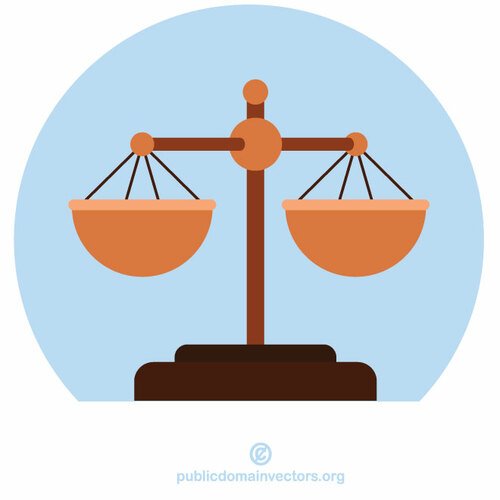On November 30, 2023, the American Bar Association released its fifth annual Profile of the Legal Profession. This free report, a 140-page compilation of statistics and trends about lawyers, judges, and law students, includes sections on demographics, wages, law schools, judges, pro bono work, women in the profession, legal technology, lawyer well-being, and lawyer discipline. One additional chapter — a review of civil legal aid in the United States — is the feature we wish to explore in today’s blog post.
Read moreFeel Good Friday: National Ampersand Day
Today, September 8, is National Ampersand Day. In addition to sharing a few fun facts about this squiggly symbol, we will discuss a not-so-recent but still-so-trendy practice in the naming of law firms. Over the last 15 years or so, BigLaw has adopted a more polished, less conventional approach to branding. Instead of the more traditional practice of identifying all named partners in the title of the firm, larger firms have opted for more airy austerity. In 2010, just three Am Law 100 firms officially used a single surname, but in 2023, these abbreviated brands are the rule more than the exception. Shortened names may help build stronger brand identity, as those in favor of the trend like to point out, but these elegant eponyms, according to others, lack a critical element – the ampersand, a most elegant emblem itself.
Read moreFrom Legal Tech to Tech Law: Technology as a Legal Practice
At the Harris County Robert W. Hainsworth Law Library, we promote the benefits of legal tech. We offer a rotating series of educational opportunities to help library users engaged in legal work improve their legal tech skills. Our Legal Tech Institute, which celebrates 7 years of legal tech training this October, is offering several classes in the upcoming months. Check our Course Calendar here to register for events taking place as soon as this week (August 31) when we will offer three CLE sessions on legal drafting, law practice essentials, and our LexisNexis ebook collection. The sessions, which are designed to offer useful tools for both practicing attorneys and self-represented litigants, will each carry one free hour of CLE credit. We are happy to support the legal community by providing regular CLE opportunities for active members of the Texas Bar.
We also feel strongly about supporting the community of law students right in our backyard. With three of Texas’s ten ABA-accredited law schools within a stone’s throw of our physical location on the first floor of Congress Plaza in downtown Houston, we are mindful of aspiring lawyers -- those pursuing juris doctorate degrees, as well as recent graduates, particularly newly minted solo practitioners. This population is the focus of today’s Tech Tuesday blog post as we explore not Legal Tech but Tech Law, a field of legal practice dealing with developments and innovations in data gathering and analysis, machine learning, generative AI, and so much more, especially with respect to the impact of these advances on our economy, society, and civil institutions.
Attorneys who practice in this area of law inform policy decisions, shape legislation, and support the development of legal frameworks for understanding, navigating, regulating, and managing the many facets of technology we encounter every day. Borrowing content from this blog post, the following are listed as specific areas in which lawyers play important roles in the technology landscape:
The legal field offers a wide array of roles within the technology sector beyond traditional legal practice. Here are some additional roles where lawyers with tech expertise can make a significant impact:
Legal Counsel/Advisor for Tech Companies: Specialize in providing legal guidance to technology companies on issues ranging from intellectual property protection to data privacy and protection.
Contracts and Agreements: This includes negotiating, drafting, and reviewing technology-related contracts such as software licensing agreements, technology transfer agreements, and service-level agreements.
Regulatory Compliance: Oversee and ensure that tech products and services meet industry-specific regulations and standards, such as incorporation, cybersecurity regulations and telecommunications laws amongst others.
Funding and Private Equity Advisory: Lawyers offer strategic counsel on securing investment and private equity funding to fuel tech companies’ growth.
Data Protection and Privacy Compliance: With the rise of data privacy concerns, lawyers can take on roles to ensure that tech companies comply with data protection regulations and handle user data responsibly.
Ethics and AI Specialist: Focus on the legal and ethical implications of artificial intelligence and emerging technologies, ensuring that tech developments align with legal and ethical standards.
If you are a current law student or a recent law school graduate wishing to build your tech proficiency, we have the tools for you! Join us at an upcoming Legal Tech Institute session, or take advantage of the access we provide to legal research databases and ebook collections. If you find that your interest and aptitude for all things tech leads you to the path of practicing Tech Law, keep in mind the options mentioned above as well as the areas of intellectual property, cybercrime, software licensing, and electronic commerce, for which specialized knowledge and tech expertise are both desired and in demand.
Zooming into the Harris County Courtroom
We are pleased to announce the launch of our Zoom Help page, which provides helpful information about using Zoom and video conferencing technologies to attend court proceedings. The centerpiece of the new page is a two-part video series titled Zooming into the Harris County Courtroom.
Read more2021 Cybersecurity Legislation Compiled by the National Conference of State Legislatures
According to the National Conference of State Legislatures (NCSL), so far in 2021, “At least 44 states and Puerto Rico introduced or considered more than 250 bills or resolutions that deal significantly with cybersecurity.” In Texas, there have been 27 bills related to cybersecurity this legislative session, three of which have been signed by the governor to date.
Read more



